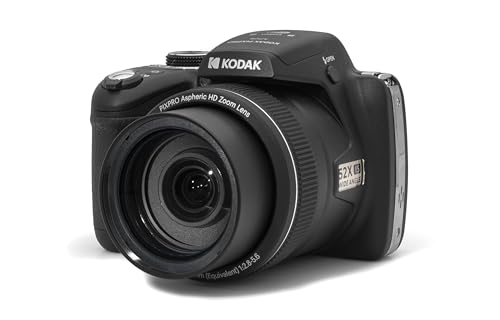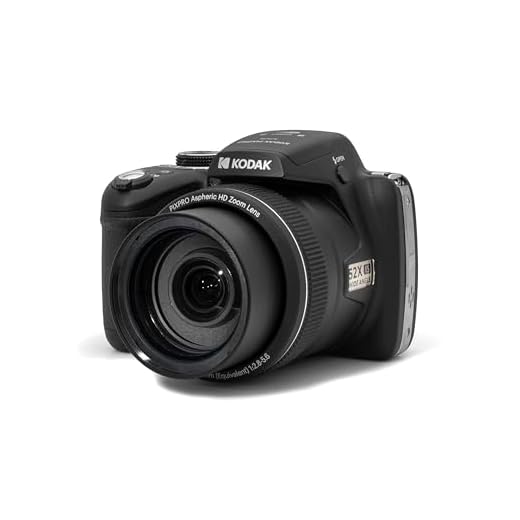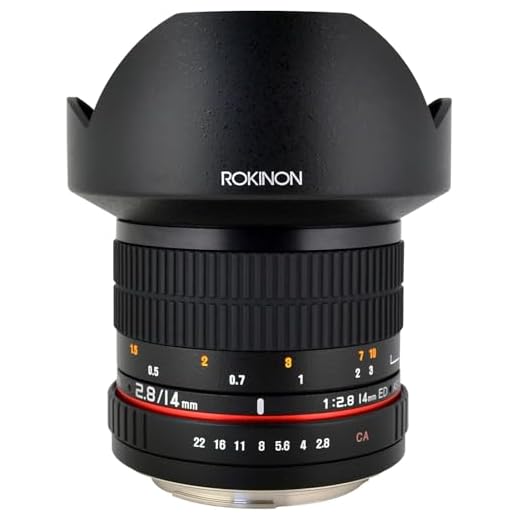




Sky glow is the brightening of the night sky caused by artificial light pollution. It can be a significant issue for astronomers, astrophotographers, and anyone who wants to enjoy a clear view of the stars. One way to quantify and monitor sky glow is by using a digital camera.
Measuring sky glow with a digital camera involves capturing images of the night sky and analyzing the brightness levels in those images. By comparing the brightness of the sky to a reference point or background, you can determine the amount of light pollution present in the area.
With the right equipment and techniques, you can effectively use a digital camera to assess sky glow in your location. This article will guide you through the process of setting up your camera, capturing images, and analyzing the data to measure sky glow accurately.
Understanding the Basics of Sky Glow Measurement with a Digital Camera
Sky glow measurement using a digital camera is a cost-effective and efficient method to assess light pollution levels in the night sky. By capturing images of the night sky and analyzing them, researchers can quantify the amount of artificial light present in the atmosphere and its impact on astronomical observations.
Equipment Needed
To measure sky glow with a digital camera, you will need a DSLR camera with manual exposure settings, a sturdy tripod to keep the camera stable, and a remote shutter release to prevent camera shake. Additionally, a wide-angle lens with a fast aperture is recommended for capturing detailed images of the night sky.
Measurement Process
Start by setting up your camera on a tripod and pointing it towards the night sky. Use manual exposure settings to control the ISO, aperture, and shutter speed to capture a well-exposed image of the sky. Avoid overexposing the image to prevent clipping of bright areas.
After capturing the image, transfer it to a computer and analyze it using image processing software. You can use tools like Photoshop or Lightroom to measure the sky glow by analyzing the brightness levels of the image. Compare the brightness of the night sky with a reference image taken in a dark sky location to quantify the amount of light pollution present.
Choosing the Right Camera Settings for Accurate Sky Glow Measurement
When using a digital camera to measure sky glow, it is important to select the appropriate settings to ensure accurate results. Here are some tips for choosing the right camera settings:
- Manual Mode: Use the manual mode on your camera to have full control over the exposure settings. This will allow you to adjust the aperture, shutter speed, and ISO to capture the sky glow accurately.
- Low ISO: Set the ISO to the lowest possible value to reduce noise in the image and capture the true colors of the sky glow.
- Wide Aperture: Use a wide aperture (small f-stop number) to let in more light and capture the faintest details of the sky glow.
- Long Exposure: Increase the shutter speed to capture longer exposure times, which can reveal the extent of the sky glow in the image.
- Manual Focus: Set the focus manually to ensure sharpness and clarity in the sky glow measurements.
By following these tips and selecting the right camera settings, you can accurately measure and analyze sky glow using a digital camera.
Setting Up Your Digital Camera for Sky Glow Measurement
To effectively measure sky glow with your digital camera, you need to ensure that your camera is set up correctly. Follow these steps to optimize your camera settings:
1. Manual Mode
Set your camera to manual mode to have full control over the exposure settings. This will allow you to adjust the shutter speed, aperture, and ISO to capture accurate measurements of the sky glow.
2. Long Exposure
To capture the faint light of sky glow, use a long exposure setting on your camera. Experiment with exposure times ranging from a few seconds to several minutes to find the optimal balance between capturing details and avoiding overexposure.
By setting up your digital camera properly, you can effectively measure and monitor sky glow in your area to contribute to light pollution research and conservation efforts.
Capturing High-Quality Images for Sky Glow Analysis
When using a digital camera to measure sky glow, it is crucial to capture high-quality images to ensure accurate analysis. Follow these tips to improve the quality of your images:
1. Use Manual Mode
Set your camera to manual mode to have full control over the exposure settings. This will allow you to adjust the aperture, shutter speed, and ISO to get the best image quality for sky glow analysis.
2. Use a Tripod
To avoid camera shake and ensure sharp images, use a tripod to stabilize your camera. This is especially important when capturing long exposure shots of the night sky.
- Position the tripod on stable ground
- Adjust the height and angle of the camera as needed
By following these tips, you can capture high-quality images for sky glow analysis and contribute valuable data to light pollution research.
Processing and Analyzing Sky Glow Data from Digital Camera Images
Once you have captured images of the night sky using a digital camera, the next step is to process and analyze the data to quantify the level of sky glow in your area. Here are some steps you can follow to analyze the data:
1. Image Processing
Start by transferring the images from your camera to your computer. Use image processing software like Adobe Photoshop or GIMP to adjust the brightness, contrast, and color balance of the images to make the sky glow more visible.
2. Data Analysis
Once you have processed the images, you can use software like ImageJ or SkyGlow Analyzer to analyze the data. Measure the intensity of the sky glow by selecting a region of interest in the image and calculating the average pixel value in that area.
By following these steps, you can quantitatively measure the level of sky glow in your images and track changes over time to assess the impact of light pollution in your area.
Comparing Different Methods of Sky Glow Measurement Using a Digital Camera
When it comes to measuring sky glow using a digital camera, there are several methods that can be employed to accurately capture and analyze the night sky’s brightness. In this article, we will compare and contrast different techniques for measuring sky glow with a digital camera.
Method 1: Single Exposure
One common method is to take a single long exposure photograph of the night sky using a digital camera. This method involves setting the camera to a long exposure time (e.g., 30 seconds) and capturing an image of the sky without any artificial light sources in the frame. The resulting photograph can then be analyzed using image processing software to determine the level of sky glow present.
Method 2: Stacked Exposures
Another approach is to take multiple shorter exposure photographs of the night sky and stack them together using specialized software. By combining several images taken over a period of time, this method can help reduce noise and improve the overall quality of the image. Stacked exposures can provide a more detailed and accurate representation of sky glow levels in a given area.
Tips and Tricks for Improving Sky Glow Measurement Accuracy with a Digital Camera
Measuring sky glow with a digital camera can be a powerful tool in assessing light pollution levels in your area. To ensure accurate and reliable measurements, consider the following tips and tricks:
| 1. Camera Settings: | Adjust the camera settings such as ISO, aperture, and exposure time to capture the night sky accurately. Use a low ISO setting to minimize noise and a wide aperture for better light gathering. |
| 2. Manual Focus: | Set the focus to manual mode and adjust it to infinity to capture sharp star images and avoid blurriness. |
| 3. Tripod Stability: | Use a stable tripod to prevent camera shake and ensure sharp images. Consider using a remote shutter release for hands-free operation. |
| 4. Calibration: | Calibrate your camera by taking test shots of known light sources to establish a baseline for accurate sky glow measurements. |
| 5. Image Processing: | Use image processing software to analyze and enhance the captured images for better visibility of sky glow levels. |
Understanding the Limitations of Using a Digital Camera for Sky Glow Measurement
While digital cameras can be a useful tool for measuring sky glow, it is important to understand their limitations in this context. Here are some key limitations to consider:
1. Sensitivity to Light Pollution Levels
Digital cameras may not always accurately capture the true extent of sky glow, especially in areas with high levels of light pollution. The camera’s sensor may not be sensitive enough to detect faint light sources, leading to underestimation of sky glow levels.
2. Color Accuracy
The color accuracy of digital cameras can vary depending on the model and settings used. This can affect the measurement of sky glow, as the camera may not accurately represent the true color of the night sky due to light pollution and other factors.
- 3. Limited Dynamic Range
Most digital cameras have a limited dynamic range, which can make it challenging to capture the full range of brightness levels in the night sky. This can result in loss of detail in both bright and dark areas, impacting the accuracy of sky glow measurements.
Incorporating Digital Camera Sky Glow Data into Light Pollution Research
When using a digital camera to measure sky glow for light pollution research, it is important to consider the following steps:
- Camera Settings: Set the camera to manual mode and adjust the aperture, ISO, and exposure settings to capture a clear image of the night sky.
- Image Collection: Take multiple images of the night sky at different locations to capture variations in sky glow levels.
- Data Analysis: Use software tools to analyze the images and quantify the levels of sky glow present in each image.
- Comparative Analysis: Compare the sky glow data collected with other light pollution measurements to understand the impact of artificial light on the night sky.
By incorporating digital camera sky glow data into light pollution research, researchers can gain valuable insights into the extent of light pollution in different areas and develop strategies to mitigate its effects.
Future Developments in Digital Camera Technology for Sky Glow Measurement
As technology continues to advance, digital cameras are becoming more sophisticated and capable of capturing higher quality images. This trend is also reflected in the field of sky glow measurement, where digital cameras are being used to monitor and analyze light pollution.
Improved Sensor Technology
One of the key areas of development in digital camera technology for sky glow measurement is in sensor technology. Manufacturers are constantly improving the sensitivity and dynamic range of sensors, allowing cameras to capture more detail and accurately measure the brightness of the night sky.
Enhanced Software Algorithms
In addition to hardware improvements, software algorithms are also being developed to enhance the capabilities of digital cameras for sky glow measurement. These algorithms can help remove noise, correct for atmospheric distortion, and improve the accuracy of light pollution measurements.
- Advancements in sensor technology
- Enhancements in software algorithms
- Integration with other technologies such as drones and satellites
- Increased automation and remote monitoring capabilities
FAQ
Can I use any digital camera to measure sky glow?
Yes, you can use any digital camera to measure sky glow as long as it has manual settings for exposure time and ISO. However, cameras with larger sensors and better low-light performance will provide more accurate and detailed measurements.
How do I set up my digital camera to measure sky glow?
To set up your digital camera for measuring sky glow, you should use manual mode and set the exposure time to a few seconds or longer. Additionally, adjust the ISO to a low value to minimize noise in the image. You may also need a stable tripod to prevent camera shake during the long exposures.
What are the benefits of using a digital camera to measure sky glow?
Using a digital camera to measure sky glow allows for easy and cost-effective monitoring of light pollution levels in your area. The images captured can be analyzed using software to quantify the level of sky glow, providing valuable data for research and advocacy efforts to reduce light pollution.






